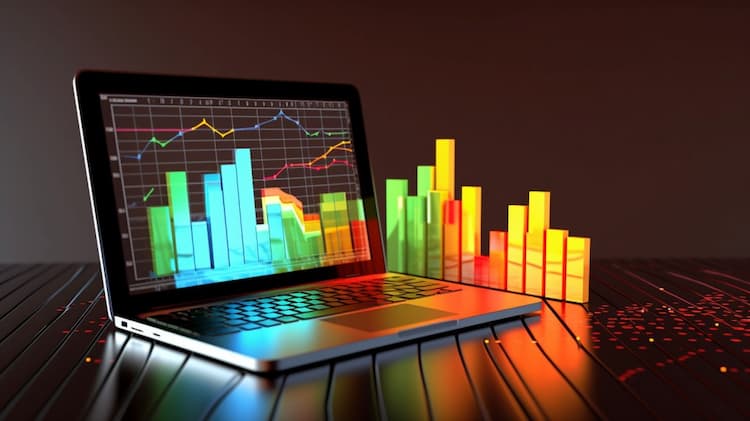
What does IWM stand for in stocks
In the world of stocks and investing, various abbreviations and ticker symbols are used to represent specific companies, indices, or exchange-traded funds (ETFs). One commonly encountered ticker symbol is IWM. If you have come across this abbreviation and wondered what it stands for in the context of stocks, you're in the right place. In this article, we will explore the meaning behind IWM and its significance in the world of stocks. Understanding the origin and representation of ticker symbols like IWM can provide valuable insights into the underlying assets and investment opportunities associated with them.
IWM Overview
When it comes to the world of stocks and investing, there are numerous abbreviations and acronyms used to represent different financial instruments. One such acronym is IWM. So, what does IWM stand for in stocks? IWM stands for the iShares Russell 2000 ETF. It is an exchange-traded fund (ETF) that tracks the performance of the Russell 2000 Index, which consists of small-cap stocks in the United States. The IWM ETF is widely used by investors and traders to gain exposure to the broader small-cap segment of the stock market.
To learn more about the iShares Russell 2000 ETF and its features, you can visit the official website of iShares by BlackRock.
Benefits and Risks of Investing in IWM
Investing in the iShares Russell 2000 ETF (IWM) can offer several benefits to investors. Firstly, it provides exposure to a broad range of small-cap stocks, allowing investors to diversify their portfolios and potentially capture the growth potential of smaller companies. Additionally, as an ETF, IWM offers liquidity and can be easily bought and sold on the stock exchange, providing investors with flexibility.
However, it's important to consider the risks associated with investing in IWM. Since the ETF tracks the performance of small-cap stocks, it may be subject to higher volatility compared to large-cap or mid-cap stocks. This means that the value of the ETF can experience significant fluctuations, which may result in potential losses for investors.
For a comprehensive understanding of the benefits and risks of investing in the iShares Russell 2000 ETF, you can refer to the prospectus provided by iShares.
Remember, always consult with a qualified financial advisor before making any investment decisions.
 IWM overlap What does IWM stand for in stocks?
IWM overlap What does IWM stand for in stocks?
How to Invest in IWM?
Investing in the iShares Russell 2000 ETF (IWM) can be done through various brokerage platforms and financial institutions. To get started, you will need to open an investment account with a broker that offers access to ETFs. Many popular online brokerage firms, such as Charles Schwab, TD Ameritrade, and Fidelity, provide the ability to invest in IWM.
Once you have selected a brokerage platform, you can search for the ticker symbol "IWM" and place an order to buy shares of the iShares Russell 2000 ETF. It's important to review the trading fees, account minimums, and any other relevant information specific to your chosen brokerage.
For detailed instructions on how to invest in the iShares Russell 2000 ETF, you can visit the respective brokerage websites and explore their resources and guides on ETF investing.
Factors Affecting the Performance of IWM
Several factors can influence the performance of the iShares Russell 2000 ETF (IWM). Since the ETF tracks the Russell 2000 Index, changes in the overall market sentiment and economic conditions can have a significant impact. Factors such as interest rates, inflation, geopolitical events, and company-specific news can affect the performance of the small-cap stocks included in the index and, consequently, the performance of IWM.
It's important for investors to stay informed about market trends, conduct thorough research, and consider their investment goals and risk tolerance before making any investment decisions related to IWM.
In conclusion, IWM stands for the iShares Russell 2000 ETF, which is an ETF that tracks the performance of small-cap stocks in the United States. Investing in IWM can provide exposure to the potential growth of smaller companies but also carries risks associated with higher volatility. Before investing, it is essential to conduct thorough research, assess your risk tolerance, and seek advice from a qualified financial professional.
Disclaimer: This article is provided for informational purposes only and does not constitute investment advice. The author is not providing any investment advisory services. Please consult with a qualified financial advisor before making any investment decisions.
Source 1: IWM issuer website
Source 2: Reuters article about IWM
IWM quote and analysis
Discover the top holdings, correlations, and overlaps of ETFs using our visualization tool.
Our app allows you to build and track your portfolio.
To learn more about the IWM iShares Russell 2000 ETF, access our dedicated page now.
FAQ
What is IWM?
IWM is the ticker symbol for the iShares Russell 2000 ETF. It represents an exchange-traded fund that aims to track the performance of the Russell 2000 Index, which consists of small-cap stocks in the U.S. equity market.
What does IWM stand for in stocks?
IWM stands for "iShares Russell 2000." It is a commonly used ticker symbol to represent the iShares Russell 2000 ETF in stock market trading.
What does IWM track?
IWM tracks the performance of the Russell 2000 Index. This index is designed to measure the performance of the small-cap segment of the U.S. equity market. It includes approximately 2,000 small-cap stocks.
What is the IWM index?
The IWM index refers to the Russell 2000 Index. It is widely recognized as a benchmark for measuring the performance of small-cap stocks in the U.S. equity market.
What stocks are in the IWM?
The IWM ETF holds a diversified portfolio of stocks that aims to replicate the performance of the Russell 2000 Index. The specific stocks held in the IWM can change over time as the fund's holdings are periodically adjusted to align with the index. The Russell 2000 Index includes a broad range of small-cap stocks from various sectors.







